Rabbis Witness Realities of Life on Mexico Border
Days before the government partially shut down due to Trump’s demands for funding a border wall, four members of the Atlanta Jewish community visited the site of contention.
Just days before the federal government partially shut down as a result of President Donald Trump’s demands for more than $5 billion in funding for a Mexican border wall, four members of the Atlanta Jewish community visited the site of contention.
The U.S.-based group that visited the border at Nogales in Sonora, Mexico Dec. 16-20 included Atlanta-area Rabbis Michael Bernstein, Pamela Gottfried and Joshua Lesser, along with Olivia Rocamora, Spanish department head of The Weber School. The trip was coordinated with Rabbis Without Borders and the Kino Border Initiative.
The goal of the trip, according to Lesser, was to see a human side of immigration debates, which too often take the form of demonizing and “otherizing” people.
The four spent time in the comedor, or dining room, where they served food to migrants and spoke to those who wanted to share their stories. Bernstein explained the importance of human interaction and entertainment.
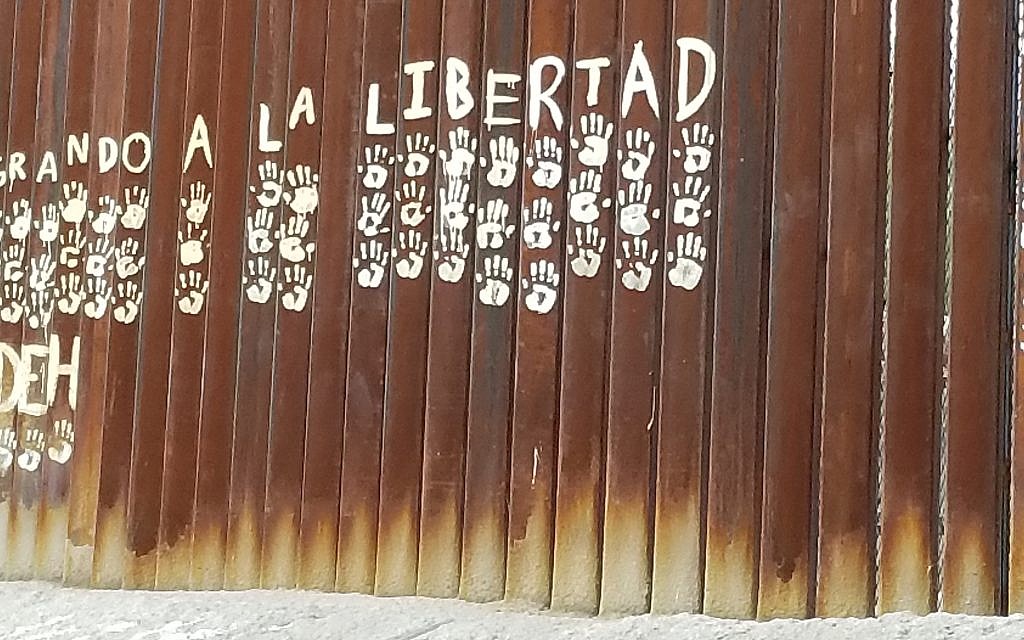
“We had a rabbi with us, who I knew from other conferences we’d been to, who could juggle,” Bernstein said. “He would juggle and again, you’d think why would they want to see somebody juggle? But adults and kids totally got into it, and you realize how starving they are for that kind of fun.”
Rocamora described what it was like seeing the number of Americans and Mexicans working to ensure there was a dignity and humanity to the experience, even in difficult circumstances. She said that her ability to speak a common language with many of the migrants allowed her to connect in distinct ways.
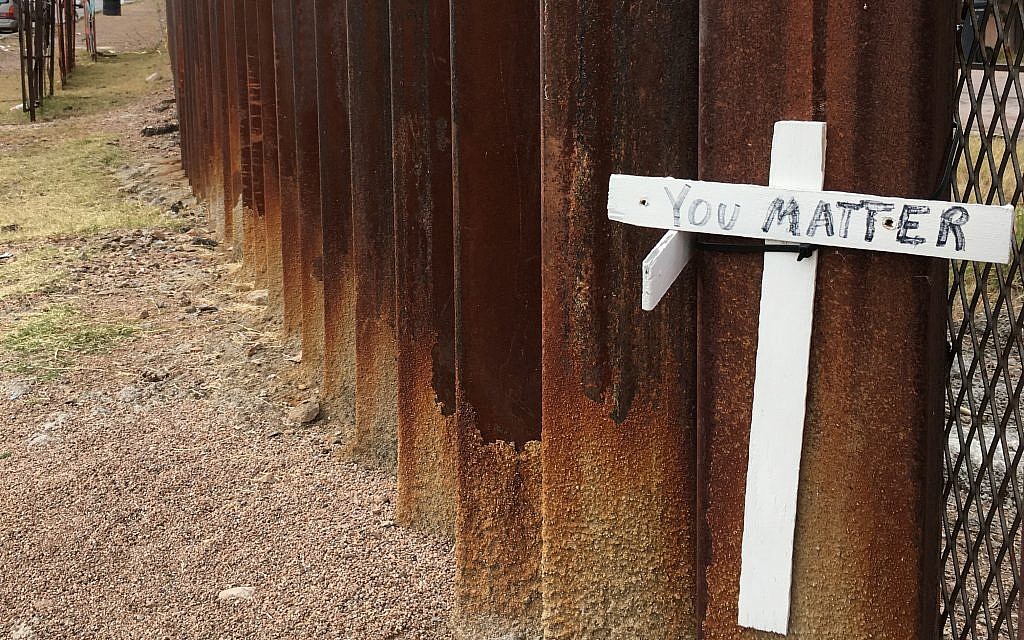
“When you speak someone else’s language, it’s like having a key to their house; you gain access to rooms others can’t see from the outside,” Rocamora said. “My Spanish allowed me to understand the details of migrants’ stories and be an accurate witness. I was also able to express my confusion, grief, and hope along with them, reminding them of a larger family we are all a part of.”
Underscoring the lessons of this trip are recent political decisions in the United States, such as President Trump’s attempts to restrict the asylum process or his calls for a border wall.
“What saddened me most was discovering that the United States defines asylum as religious or political persecution, and though the mafia governs areas by bribing local authorities to do nothing, that doesn’t count as political persecution,” Rocamora said.
Bernstein said that the attitudes surrounding many of the president’s immigration policies could be as damaging as the policies themselves.
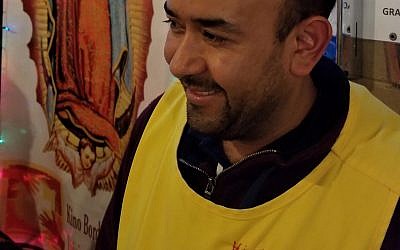
“The wall itself comes along with an attitude of xenophobia. … A strong presence on the border could be helpful if there was a commitment to migration and letting people in, at the very least whose lives are threatened, but also who are looking for economic opportunity like every other migrant group have come.”
Both Rocamora and Lesser emphasized that education about the human side of the border, as well as the issues themselves, were vital to a true understanding of the situation.
“[In my classes] I’m always pushing kids to see immigration as a personal issue, not just a political issue, helping them foster empathy for immigrants,” Rocamora said.
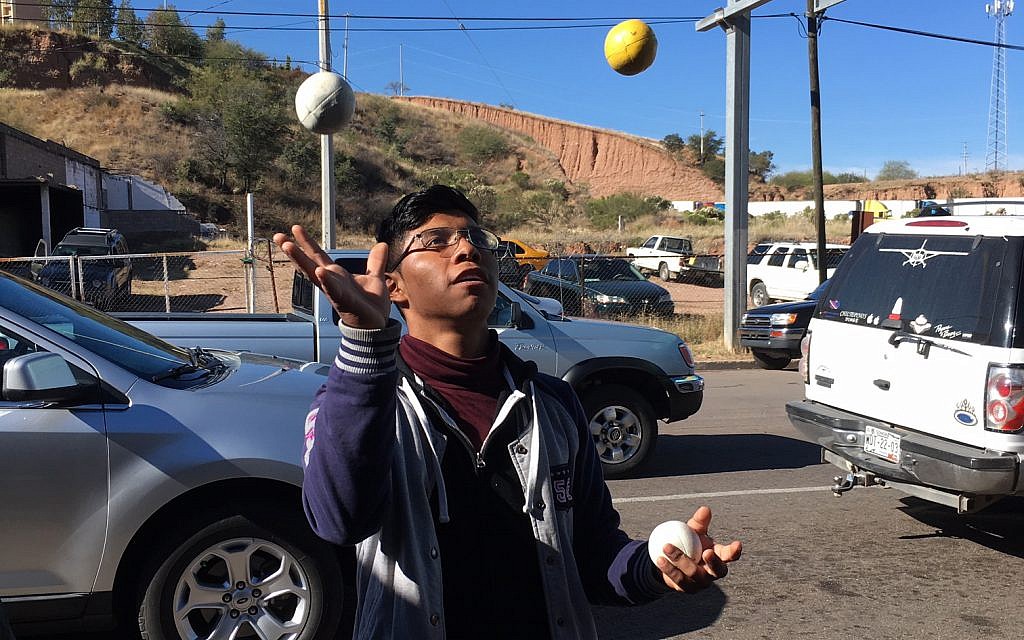
Lesser said that while the Mexican border is far away, Congregation Bet Haverim supports detainees closer to home at Stewart Detention Center in Lumpkin, Ga., about 140 miles south of Atlanta.
“There are a number of detention centers in Georgia. From a very deeply Jewish place, calling on our family stories, we need to be able to speak to our legislators and say, this is not acceptable,” Lesser said. “The myths and lies about the people at the border must stop.”



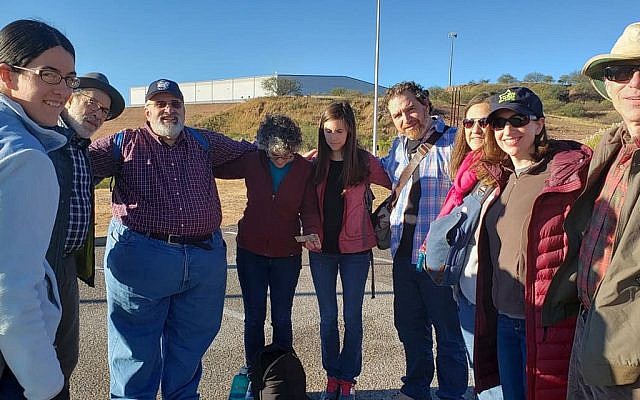
comments